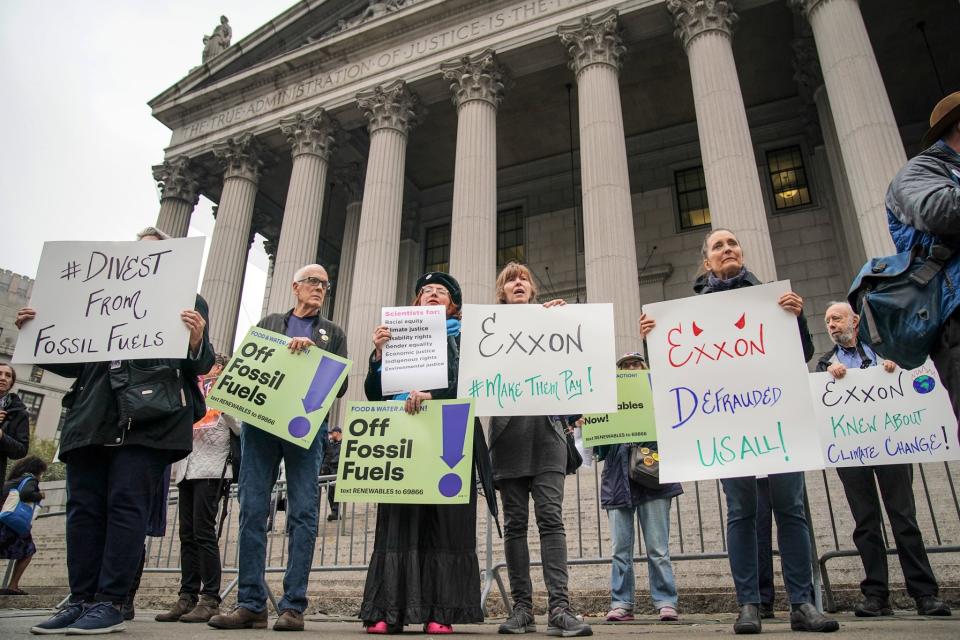How the climate battle moved from boardrooms to courtrooms and backrooms

There’s an interesting phenomenon taking place in sustainability: The battleground over climate transition plans is moving from lobbying management and shareholder meetings to legal courts and the legislative lobby.
The legal battle is playing out in places like Texas, Switzerland, and the Netherlands, where courts are now ruling on matters that might otherwise be put in front of company general meetings, management, or boards. Meanwhile, trade lobbying of lawmakers is faced with increased scrutiny from NGOs and activists, which target trade associations over their conservative climate lobbying.
After writing last week about the legal proceedings of Exxon Mobil against its activist climate shareholders Follow This and Arjuna Capital, I spoke to Follow This founder Mark van Baal. Because of the ongoing proceedings, he couldn’t say much, but it's clear that going to court over shareholder proposals is unusual: In conflicts between shareholders and company management, the relevant arbiter is usually the Securities and Exchange Commission, not a court.
Then again, climate activists too have increasingly been going to court in recent years to force companies to adopt more ambitious climate transition plans. Two years ago, a Dutch court ordered its oil giant, Royal Dutch Shell, to lower its carbon emissions by 45% following a complaint from several climate groups. There has been a litany of climate cases against companies ever since. Columbia University’s Sabin Center for Climate Change Law counted at least 192 of them around the world.
Climate activists may have gotten there first, but Exxon’s case shows that companies, too, have used the judicial system to go after their climate transition opponents.
Similarly, trade lobby associations are finding themselves increasingly in the eye of the storm when it comes to climate activists and NGOs. Paul Polman, the former Unilever CEO turned climate activist, was one of the first and most prominent proponents of targeting trade associations over climate. He called out the hypocrisy of companies publicly touting their climate credentials while lobbying against climate action in his 2022 book Net Positive.
NGOs and other groups have been following in his footsteps in recent months. Just this week, Planet Tracker, one such NGO, put out a report listing the trade associations in the consumer and chemical sectors that are non-aligned with the Paris climate agreement. They also pointed out which companies were members of these associations, which include Air Liquide, BASF, Dow, and P&G.
“If a company is sincere [in pursuing climate goals], but they are in a trade association that is absolutely not upholding that goal setting, then what is the company really saying?” Robin Millington, Planet Tracker’s CEO, told me. “We’re all acutely aware that greenwashing can be very subtle and very clever.”
Her organization put out the report with the aim of shaming the trade associations in question, including the U.S. Chamber of Commerce and the German Chemical Association, and showing companies what she deems “better practices” for dealing with misaligned trade lobbies. (LyondellBasell, for example, put out a climate advocacy report that created transparency over which lobbying groups it was part of and the steps it had taken to prevent misalignment over climate with them.)
Taken together, these and other actions, both by activists and companies, show that legal courts and lobbying groups are now fair game in the battle over climate action. It’s a welcome evolution, but one that could have unintended consequences.
More news below.
Peter Vanham
Executive editor, Fortune
peter.vanham@fortune.com
This edition of Impact Report was edited by Holly Ojalvo.
This story was originally featured on Fortune.com

 Yahoo Finance
Yahoo Finance 